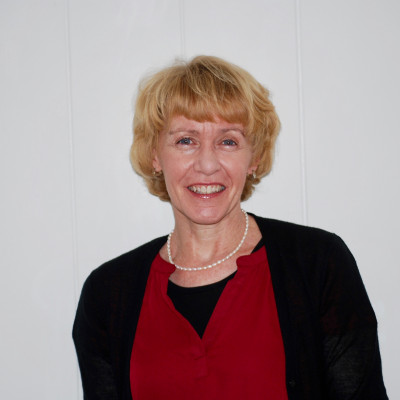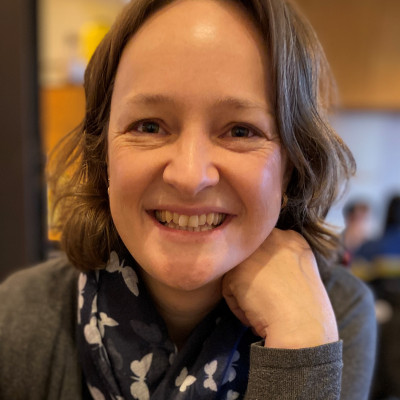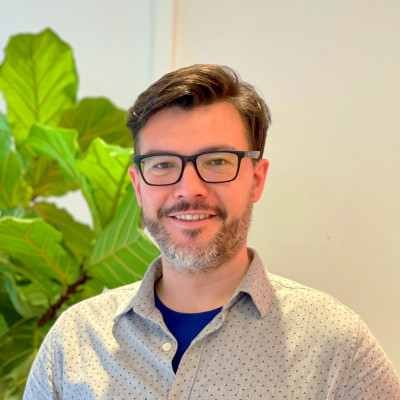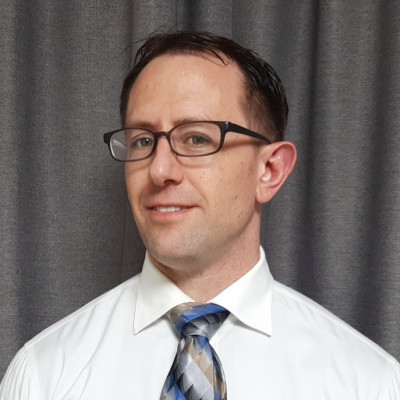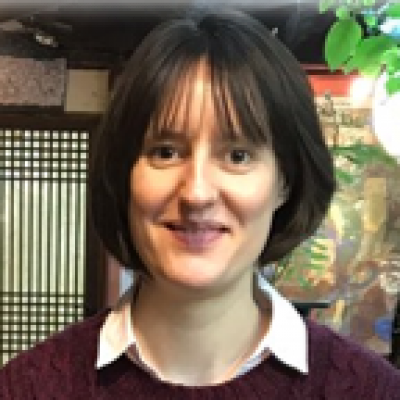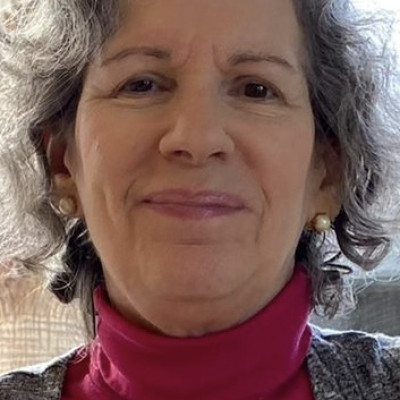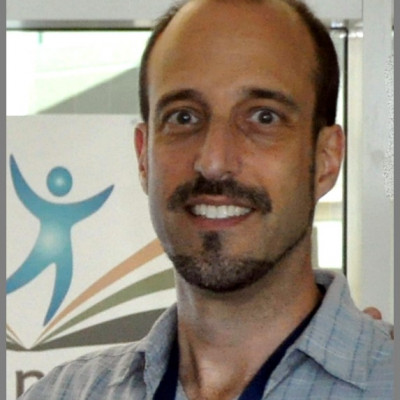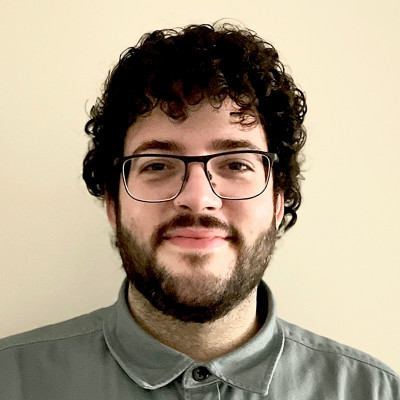Sessions / Workshop (50 mins)
Diversity in Learner Negotiation of English L2 Identity; Implication for Korean ELT Praxis #2783
Building off McNeill (2021) examining the value of the L1 in ESL/EFL classrooms, the presenters introduce the role of exploring students’ L1 and EFL identities as a means for teachers to understand their students’ personal L1 Korean socio-linguistic identity, and the relationship with and negotiation of their English identity. Leveraging awareness of students’ L1 and EFL identities places learners in a position of language informers, offers a form of socio-cultural dialogue, and expands the English language learning experience. With this, the presenters share activities and projects for how EFL teachers can explore the complex interrelationships between language and culture, and their students’ sociocultural identities through explicit discussions in their classrooms. Language learning is more than words, and it is beneficial for language learning in and outside of the classroom.
The Power of Obsidian: Revolutionising How We Take Notes #2804
Note taking is a skill that is simultaneously recognised as essential for effective studying, yet often neglected in terms of teaching. This is particularly prevalent in an ESL/EFL context where many curriculums fail to implement a systemised approach to taking notes. The repercussions are significant as students who do not know how to organise their learnings are far more likely to submit work that is substandard. This presentation will look at the importance of note taking and the benefits it provides in terms of improved comprehension, increased memory retention and maintaining an organised record of learning. A system called Zettelkasten will also be explored which transforms note-taking from a memory retention tool into a powerful platform for critical thinking and creativity. The final stage will present an application called ‘Obsidian’ that provides a digitised approach to note-taking and will aid teachers and students alike in optimising the learning process.
Prosody Interventions 101 in the Online or Offline Speaking Fluency Classroom #2772
Although there is sufficient research supporting the usefulness of helping students to become more intelligible with speaking, until recently, few teachers offered direct instruction of pronunciation beyond the syllable level. Increasingly, more instruction is being offered, however, due to lack of confidence or practical training, teachers continue to shy away from dealing with pronunciation in their classrooms. This workshop is meant to fill some of the gaps in training and build interest in interventions with pronunciation. The presenter will demonstrate how to use short readings and listening passages to teach prosody (particularly supragegmentals). The methods used have been implemented at high school, university, and with adults (CEFR A1~C1). Preliminary data point to a deepening of student understanding of the tendencies inherent in English speaking, increased ability to catch the topic and main ideas while listening, improved awareness of own weaknesses, and greater motivation to improve own intelligibility.
The "Why" and "How" of Student Presentations: Two Distinct Approaches #2767
Presentations are essential in the real world, and developing presentation skills is fundamental in ELT. This workshop features two distinct approaches to presentations utilized by two colleagues from the same department, who both teach Communicative English. Despite having the same student numbers and departmental requirements, each presenter may capitalize on individual strengths to maximize pedagogical goals and student learning outcomes. Ultimately, their students have engaged with two highly different presentation formats: 1) individual with traditional presentation structure, and 2) group with the highly structured framework of PechaKucha. During this workshop, each co-presenter will briefly describe how student presentations are integrated into their lessons. Then attendees will break into small groups to discuss their experience with student presentations and consider potential applications of the methods explained. Ideally, attendees will leave the workshop with a clearer understanding of why and how they incorporate student presentations into their curriculum.
Creative Use of Corpus of Contemporary American English in Teaching Collocations (101) #2757
Over the past forty years, the use of English corpora in the English-language classroom has increasingly become prevalent. Given the pedagogical importance of corpora, this workshop aims to showcase how the Corpus of Contemporary American English (COCA) can be creatively used in teaching English collocations. In the workshop, participants will first be introduced to the concept of mutual information (MI), an important measure of associational strength of the collocations. Research has shown that non-native speakers of English tend to overuse collocations with low MI scores, while natives favor less frequent collocations with high MI scores. Following this, participants will learn how to interpret the MI scores of the collocations found in COCA. The workshop ends with three hands-on activities showing how teachers can increase students' awareness of collocations with high MI scores. The activities presented in the workshop would be the most beneficial for upper-intermediate students.
The Dictoquiz: a new adaptation to an old approach #2771
Language teachers far and wide have utilized dictation activities in their classrooms for centuries. Despite the technique's popularity, only a few variations have emerged over the years (dictocomp, dictogloss, etc). This presentation will begin with a brief explanation why and how dictation works and outline some of the benefits associated with doing it. Next, participants will have a chance to learn a progressive new adaptation to dictation they can use as a form of assessment or as a stand-alone classroom activity. Finally, participants will have a chance to react to what they heard and saw and make comments or suggestions to its implementation in the modern language classroom.
Developing L2 Oral Fluency Through Digital Storytelling 101 #2989
Developing oral fluency is a top priority in a typical EFL classroom. However, teachers may encounter roadblocks to find new and engaging material to implement in their classroom. In addition, students may find traditional communicative activities, such as discussions and role-plays to be unappealing and boring. This interactive workshop will show instructors how to utilize StoryboardThat (an online storyboard creator) and guide students in creating their own digital storyboard in order to tell stories. Attendees will learn how to incorporate fluency-building strategies, such as the use of discourse markers, formulaic sequences (e.g., phrasal verbs, collocations), and consciousness-raising tasks (i.e., checklist) so that students can build and monitor their fluency while storytelling. At the end of the session, attendees will have an improved understanding of how to create digital stories while gaining strategies for building fluency in their own classroom.
Real World English: Negotiation Skills for Intercultural Conflict Resolution in ELT #2999
Many English language classes intentionally avoid activities that might elicit interpersonal conflict in efforts to create a comfortable learning environment. In the real world, however, learners often encounter such situations requiring intercultural negotiation skills to resolve conflicts in English with confidence and accuracy. Fortunately, negotiation skills such as active listening, brainstorming, evaluating and agreeing on solutions build on routine ELT activities such as interviewing, paraphrasing, collaborating and problem-solving. Framing these types of ELT activities as conflict resolution skills allows learners to broaden their strategies to effectively address conflict in English in class and beyond. In this workshop, educators who have integrated negotiation and ELT skills in these ways will share activities, materials and stories. Participants will reflect on encounters with intercultural conflict, complete a practical learning activity to help learners apply their English communication skills to conflict resolution, and share how they might design similar tasks in their own settings.
What’s Our Students’ Biggest Fear in the Classroom? SPEAKING! #3004
Is it that time again where I must open my mouth and speak? Why are my hands getting sweaty? My heart is pounding. I feel dizzy. I cannot concentrate. Just a few of the thoughts our students get when they are facing this challenging task. Do they need to feel like this though? Let’s make speaking something our students will not only enjoy doing but do it with confidence and a smile!
Improving Employability Through Innovating the English Assessment Experience with Mobile Technology #3109
British Council EnglishScore’s innovative use of technology is helping thousands of students around the world to prove their English language skills through a convenient, affordable and secure mobile test and certificate.
Discover how a mobile English test powered by AI technology allows for greater accessibility and fairness, and offers cost savings to both institutions and students.
EnglishScore aims to improve young people’s employability and career prospects by providing a quick and affordable way to prove their English language proficiency to future employers regardless of their location or background.
Note: This session includes a video introduction to EnglishScore followed by a live Q&A with representatives of the British Council.
Don't Simply Write Your Opinion - Show a Critical Analysis #2755
Classroom writing shouldn’t be dreadful. Rather, this workshop introduces writing tasks that challenge, inspire and compel students. During the fall 2020 and 2021 semesters, the presenter utilized a 6-week writing project, transcending the standard opinion essay, with 300 university students. Through ‘Argument/Counterargument Analysis’ writing tasks, students develop essential persuasive writing skills while exploring the strategic art of concealment - an unconventional but fruitful learning opportunity. This workshop details the step-by-step processes students completed, including sentence development, small group writing roleplays and ultimately producing opposing paragraphs, where the final product is so convincing and tonally objective, the student’s true convictions about the writing prompt remain obscured. These procedures naturally cultivate critical thinking, and even empathy, as students evaluate and communicate a range of viewpoints on a given issue. After viewing student writing samples, and then exploring writing roleplay prompts in breakout groups, a wrap-up discussion will conclude the workshop.
Uniting Students with Experts around the World in the Global Classroom #3002
In the Global Classroom, we unite middle school students around the world together to innovate local solutions to world issues with the help of experts. In our latest project we explored the question: How does the food we eat impact global warming? First, students studied the causes and effects of global warming on their country. Then, they analyzed the impact of the food they ate and came together to create strategies to decrease their carbon footprint. Then, they met to dialogue with experts about the food production and distribution process. Finally, they designed and implemented relevant local solutions like planting a school garden, vegetarian Mondays in the cafeteria, building a biodigester and exploring eating insects as a source of alternative protein.
All of our projects allow students to learn to research, speak and collaborate deeply with peers and experts across the globe. Our projects also help students develop a sense of belonging to a world community and a sense of agency to live in the world in a way that contributes to the greater good.
Group Drawing Activities 101 #2806
One of the first activities ESL teachers often learn to do with their classes is have students draw pictures in small groups, then present their projects in English. This is for good reason: Not only are such activities easy to implement, they also teach a variety of helpful peripheral skills such as teamwork and creativity. However, without proper execution, these activities can be chaotic for the teacher and unhelpful for the student. In this workshop, educators will be asked to reflect on their own experiences and ideas with group drawing activities, and share their insights with others. The session will build off participants' responses by incorporating them into a step-by-step system for teaching drawing activities (both in person and online) in a way that will maximize learning and minimize stress. Finally, time will be allocated for attendees to brainstorm ways they can use the workshop's techniques in their own classrooms. The workshop requires no special materials or preparation from the participants.
Engaging EFL Learners Through the Game of Go #3006
Motivating EFL learners is a daunting task as exam-driven teaching requires drilling students to memorize vocabulary and grammar rules. Typically, TL materials cover unfamiliar topics from foreign countries which students can't easily relate to, thus impeding the learning process. Practical alternatives are urgently needed to overcome this challenge. This talk proposes to teach the East Asian board game Go inside the ESL classroom. It aims at demonstrating how EFL educators can design lessons on the game of Go that engage students actively. As the basic Go rules are simple, learners can grasp them within five minutes and have immediate hands-on activities to experience the game themselves. In addition, there are many interesting facts (i.e., history, professional players, competitions) that you can utilize when developing TL materials. In the first part of the workshop, we will elaborate on why this East Asian tradition is worth learning and what makes Go different from other board games. The second part of the workshop will focus on the basic Go rules, including some hands-on activities that you can easily use in your EFL classrooms.
Asset-Based Teaching Approach: Changing Perceptions to Create a Sense of Belonging #2791
We often hear about people who believe the glass is half empty or half full. Have you heard the glass can be refilled? How does changing our perception from a deficit mindset (glass half-empty) to an asset-based mindset (glass can be refilled) improve how we perceive our students and how they perceive themselves? What is an asset-based approach to education? All students need to be “seen” in classroom materials and find relevance in topics that connect with their interests to be engaged with the content. Lowering our expectations of students or having a deficit mindset influences how students think of themselves. This session will focus on an asset-based approach that emphasizes how to instill a sense of belonging in language learners by scaffolding new content, engaging students with classroom materials they relate to and are excited about, and providing edtech solutions that ensure inclusivity and acceptance of learning differences.
Online Speed Reading: The Fastest Way to Improve Reading Fluency #2773
Being able to read fluently is important for any language learner. It may be helpful for their academic achievement, career advancement, or improving their general language proficiency. One of the most effective and efficient ways for students to improve their reading fluency is by engaging in a dedicated speed reading course such as those advocated by Paul Nation (Nation, 2018). These courses are available for students at all ability levels. However, such courses are challenging to implement because they typically involve a textbook specifically created for speed reading, and require students to track their reading time, calculate their reading speed and report their progress. While these print resources are useful, an online system that can calculate a student’s reading speed and track their progress automatically would provide significant advantages for both students and teachers. In this practical workshop, the presenter will discuss and demonstrate several free and commercial online speed reading applications which the participants can try out for themselves.
Five Forgotten Minutes for Creating a Positive Classroom Environment #2681
In accordance with Krashen’s Affective Filter Hypothesis, I have developed a process of using a key moment of classroom time to lower students’ affective filter. Many educators and students have experienced those bone chilling silent moments that occur 5-10 minutes before class begins. Over the years, I have found that by engaging students during those brief 5-10 minutes before class begins, creates an environment that lowers students’ anxiety, increases their motivation, and nurtures a positive attitude.
For this workshop, I will share five methods to engage your students during the 5-10 minutes before class starts. After discussing these five methods, participants in the workshop will be able to discuss and practice how they would implement the five methods to engage students before class starts. The five methods in theme are: music, games, names, follow-up inquiry, and humility.
Developing Equity-Driven Assessment In-Class #2993
Designing and administering effective and equitable in-class assessments is one of the most important tasks that language teachers need to engage in. However, making the assessment process equitable is not something that is discussed much in the field of TESOL. This session will address six principles that make the classroom-level, language assessments equitable and effective. The principles that will be discussed are validity, reliability, practicality, authenticity, washback and equity. The session hosts will first describe some of the specific ways to make the assessment equitable by discussing the examples of assessments with these principles in mind. The session hosts will also ask the participants to critique assessments based on these principles. Based on this model, participants will also be asked to come up with effective and equitable assessment examples from their own experience.
An Ecolinguistics Approach to Education #2805
Schools play a vital role in shaping students’ learning and beliefs. In light of the ecological issues facing our world today, a more ecojustice-focused approach to education is vital. The theoretical framework of ecolinguistics (Stibbe, 2020) provides a useful tool for students to critically analyze the language of the texts they encounter in everyday life, school, and the media, in order to determine their underlying “story” and impact from an ecological perspective. This presentation will discuss the potential benefits ecolinguistics can offer to educators and students, and provide examples how to incorporate it into classroom lessons through linguistic analysis of school textbooks, media sources, and modern advertising.
Unpacking Global Competence as a Guiding Philosophy #3093
Partner Session (JALT)
This talk will be about unpacking the concept of global competence as a defining philosophy that can guide our professional practice and even personal life. As a species, we search for ways of understanding our circumstances so we can define our existence and find ways to evolve our relationships. I will provide definitions and interpretations of global competence, and how they apply to not only classroom practice but also what we hope students carry forward into their post-formal education lives. Questions I will explore are: What are the characteristics of a sufficiently globally competent person? Is our global competency measurable? How can we incorporate this philosophy into our teaching practice? Is this a suitable life philosophy? Participants should leave with an understanding of global competence and how it can apply to their context.
Connecting Through Nonviolent Communication in ELT #3098
Relationships are important in language teaching. However, our habitual ways of relating to ourselves and each other are not always conducive to building connections. Nonviolent Communication (NVC) offers a way of thinking about and a method for enhancing these, and the purpose of this workshop is to experience the process in the context of relating to our students and experiencing connection through explorations of personal situations and guided examples. This interactive workshop intends to engage participants by making use of various types of activities (temperature checks, associations, polls, etc.). It is hoped that teachers will leave the workshop with an appreciation for NVC and a recognition of the value of needs for connections.
The Benefits of Doing Extensive Reading with Xreading #3001
Xreading is the only digital library in the world that provides unlimited, simultaneous access to over 1500 graded readers from major ELT publishers including CUP, Cengage/National Geographic and Macmillan. It was created to give students unlimited access to graded readers, and make it easier for teachers to implement and manage extensive reading programs. Besides books, Xreading also has audio narrations, quizzes, character lists, glossaries, journals, and a timed reading component, all to enhance the reading experience for students. Xreading also benefits teachers because it allows them to track and assess their students’ reading progress, including the number of books read, words read, reading time, reading speed, and quiz results. With of all of the tracking, Xreading is an ideal tool for doing research in extensive reading. In this workshop, the founder of Xreading will give a demonstration of the system and preview some features coming later this year.
Critical Media Literacy: Encouraging Critical Thinking in the 21st Century Classroom #2782
Media literacy is not a new concept, media has long had a place in the classroom as a resource and a way of contextualizing difficult concepts (Erstad, 2010). In recent years, a new form of media literacy, Critical Media Literacy, has gained popularity as educators have found it necessary to not only educate students on the many forms of media available to their digital native students, but also help students curate the vast quantities of information available to them online (Torres & Mercado, 2010). In this workshop, educators will get a look at how Critical Media Literacy can be integrated into the ESL/EFL classroom (Arkian, 2002). Attendees will engage with various techniques and resources dedicated to helping encourage students to be critical curators of media and digital information. Finally, attendees will explore how integrating Critical Media Literacy into their curriculum can build tertiary soft skills such as critical thinking, and Global Citizenship.
Scaffolding in the Margins: Using Digital Tools to Annotate and Collaborate #2663
Instructors are aware of all manner of digital tool affordances and the benefits of blending learning practices, but how often do they use these to collaborate with students? As presentations or handouts can be shared, they can also be annotated and developed in community. This workshop encourages instructors to revisit how they employ scaffolding and collaborating in unison as they share various materials online with students. The workshop briefly reviews some principles of digital scaffolding, including theorized benefits and constraints, and then presents examples of online collaborative tools that allow students to not only access instructors' materials and notes, but even work with peers or instructors together in the same space. Examples will include digital word processing suites, digital drawing programs, and web browser annotating extensions.
Wide Reading in the Elementary Classroom #2668
Reading is one of the four main pillars of language acquisition. By engaging in a wide reading curriculum, students can acquire vocabulary, experience new grammar patterns, and reinforce their language acquisition. However, a wide reading curriculum can be tricky to incorporate, especially in the elementary classroom. In this workshop, we will discuss exactly what wide reading is, talk about strategies to make an extensive reading curriculum enjoyable for you and your students, and discuss in detail some of the challenges that are often faced when beginning your own wide reading journey in the classroom. Furthermore, we will consider some engaging pre, during, and post reading strategies you can incorporate directly into your teaching practice.
Money Drives Modern Life, so Why Not Utilize Economics-Driven Content? #2756
Money may be the most relatable topic we can present to students. With tuition, food, housing, inflation, clothes, entertainment, etc., we are inescapably bound to the economy. But instead of embracing modern capitalism, this workshop will show how economics-based lessons can exist within the paradigms of ethics, civic responsibility and environmental justice - as well as simple pleasure shopping. Fortunately, podcasts - a highly practical, comprehensive, accessible medium - offer a cornucopia of compelling content. Since spring 2020, I have utilized podcast-centered economics content, completely in English, during classroom activities, homework assignments, quizzes and even summative assessments. While aided by proper scaffolding, students have delivered convincing results. During the workshop, I will detail the effective implementation of high stakes midterm and final exams created entirely from the contents of 10- to 20-minute economics-themed podcasts. Then, attendees will discuss the topic in small groups, followed by a whole group wrap-up discussion.
Paving the Way for Communicative and Professional Development in ESP #3000
The 21st century ESP learner is required to demonstrate a broad range of communicative and professional skills in their chosen field or vocation. In order to facilitate the development of such skills, ESP instructors must be aware of the specific communicative needs of their students, while also taking into account the growing importance of soft skills in the modern workplace. This session will focus on practical ways to engage ESP learners in communication skills and soft skills required to help them succeed in their professional environment. Special attention will be paid to the implementation of these strategies, which include scaffolding techniques, use of authentic and specific materials (including both digital and print) in addition to the integration and use of functional language and topic specific vocabulary.
Five Ways to Introduce Critical Thinking into the Language Classroom #2760
Critical thinking is recognised as an important 21st century skill. But how can we introduce critical thinking into our busy language programmes? This practical session demonstrates five ways we can do this. Firstly, we can introduce metacognition by getting students to think about their own thinking using guided discussion worksheets. Secondly, we can add flexible critical thinking tasks and activities using readily available sources such as scam emails, misleading advertisements, and misleading data to sharpen thinking skills. Thirdly, class debates are a valuable way of getting students to build strong arguments by supporting their opinions with evidence, reasons, examples, and sources. Fourthly, puzzles, riddles, and quizzes are invaluable for ‘training the brain’. A final approach, easily introduced into a language classroom, is to add critical thinking 'value' to existing language exercises. We look at how higher-order thinking can be added to the teaching of vocabulary, grammar, syntax, reading, and academic writing.
Selecting, Grading, and Teaching TED Talks-Based Listening Lessons #2797
This presentation offers a three-step pedagogic framework for fellow educators to develop academic listening lessons. First, practice selecting suitable TED Talks using an aspects checklist that compares the resource to academic lectures. Second, create vocabulary profiles for the chosen TED Talk to develop lists that are suitable for learners’ levels. Thirdly, choose from different listening activities to help learners build on their background knowledge about the TED Talk. The presentation will focus on using listening journals to develop learners’ metacognitive knowledge and critical reflection that help them to plan and carry out more effective listening. Real class examples will demonstrate how to use these approaches when teaching listening. These lesson planning approaches will illustrate how we can select a suitable resource, grade the vocabulary for learners, and develop activities to use with our chosen selections in listening lessons.


